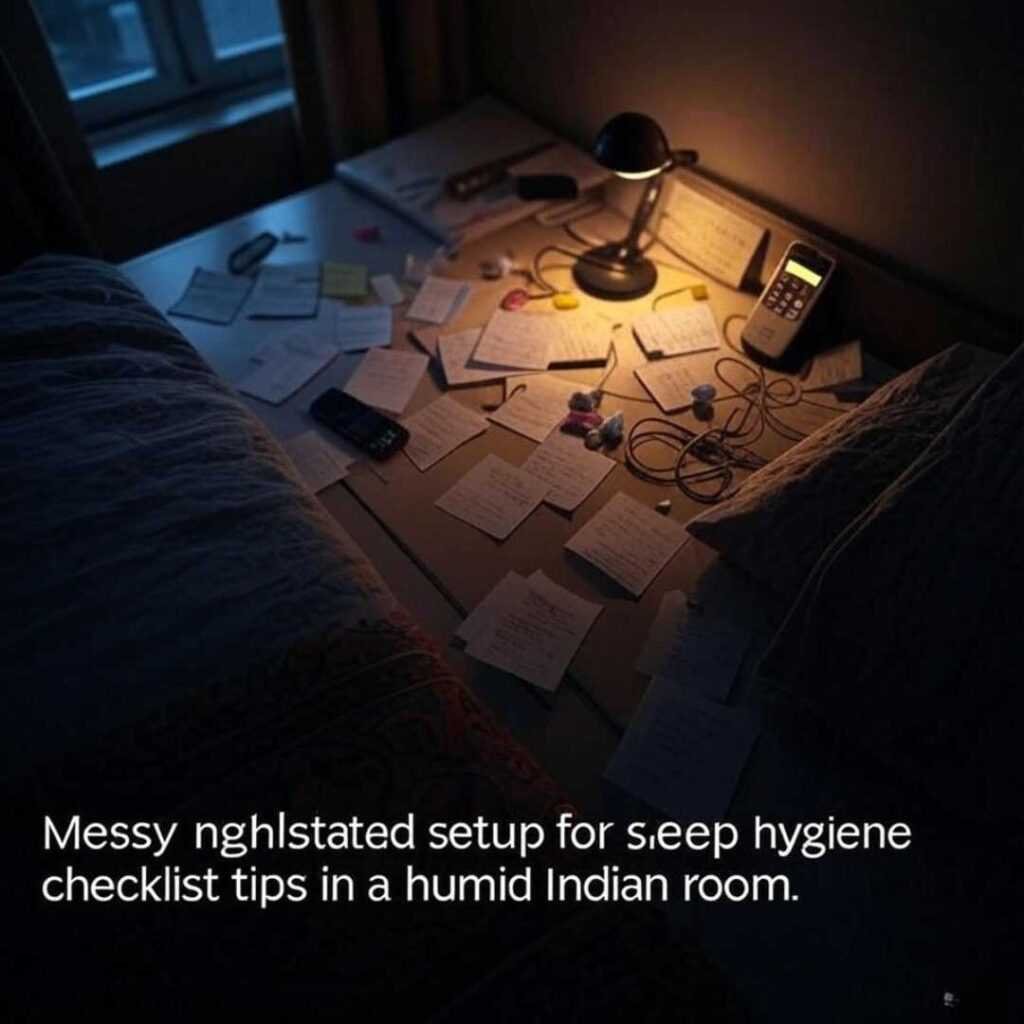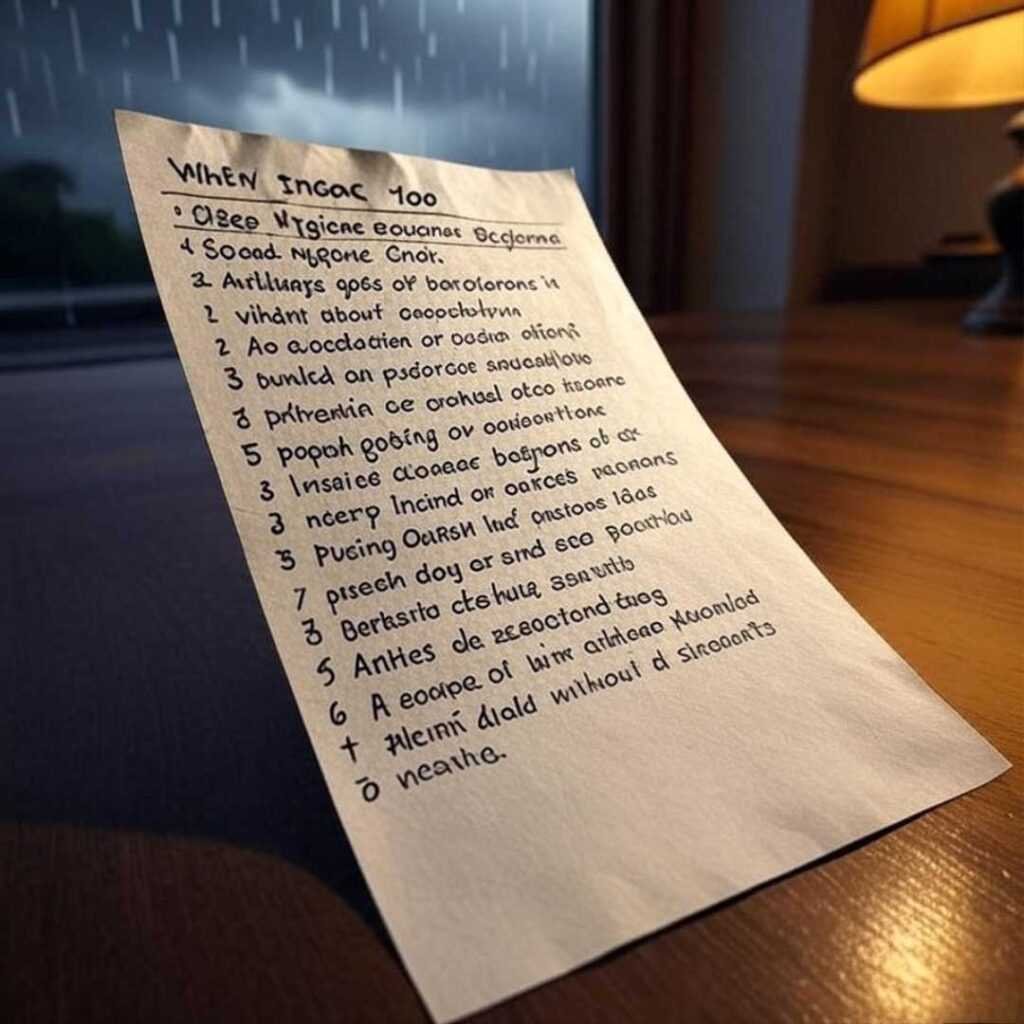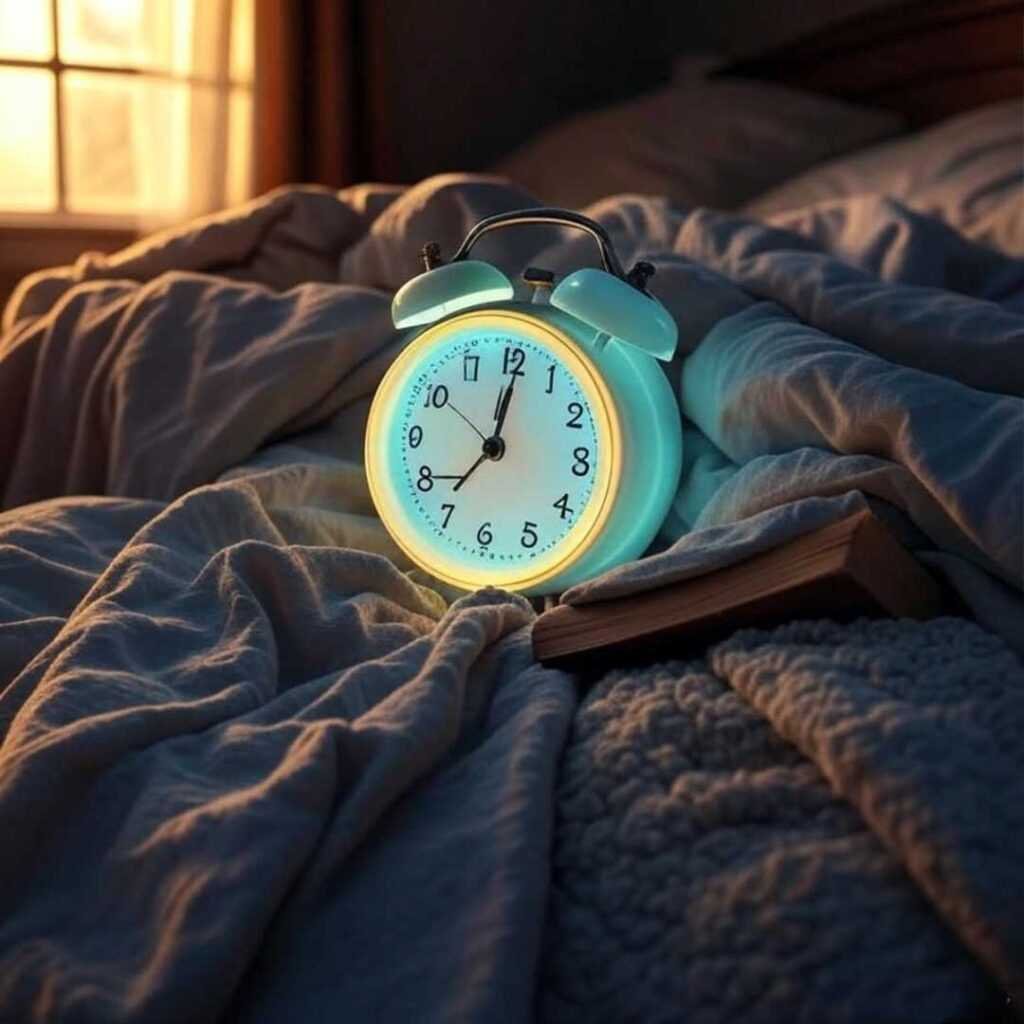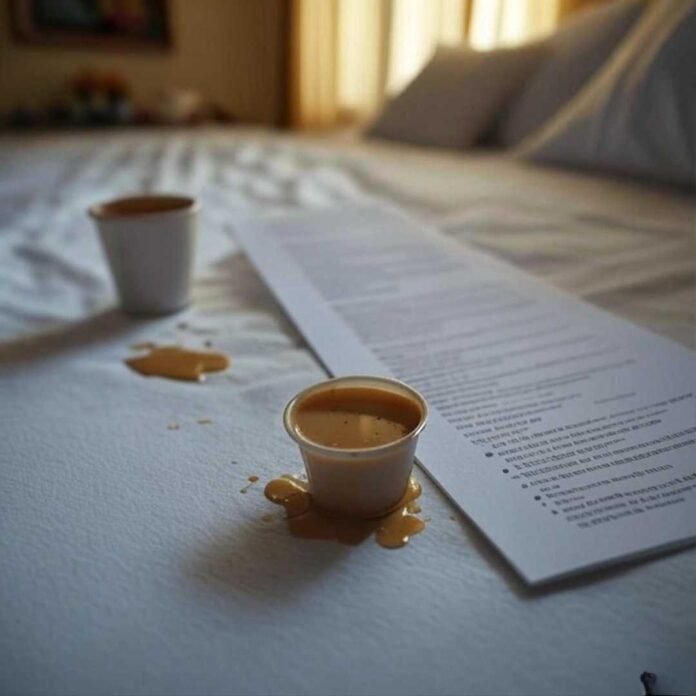Man, let me tell you, this sleep hygiene checklist straight-up rescued me from the brink of total meltdown here in Mumbai. Like, I’m an American dude who’s been crashing in this tiny apartment for the past month, and the heat? It’s like sleeping in a sauna that never turns off—sweat pooling under my back, the air thick with that mix of street food spices and exhaust fumes wafting in through the open window ’cause AC is a joke half the time. Seriously, I thought I was tough, but India hit me with that non-stop chaos: blaring horns at 3 a.m., neighbors blasting Bollywood tunes, and my jet-lagged brain just refusing to shut down. Anyway, I stumbled onto this sleep hygiene checklist during one of those desperate late-night scrolls, and boom—it changed everything, even if I still screw it up sometimes.
Why I Needed a Sleep Hygiene Checklist Badly
Back home, my sleep was okay, just Netflix and coffee late. In India, it crashed—two hours of sleep, snapping at colleagues over nothing. That 3 a.m. honk-fest and monsoon thunder wre

My Rock-Bottom Sleep Moment and the Wake-Up Call
I hit rock bottom dozing off in a meeting with my boss, head bobbing like a toy. Monsoon rain and incense smells kept me up. Earplugs and white noise helped, though I hated routines at first. Check Mayo Clinic for sleep impact.
Building My Personal Sleep Hygiene Checklist
Okay, so I didn’t just copy-paste some generic list; I tweaked it based on my screw-ups here in India. Like, first off, I made a rule to dim the lights an hour before bed—easy back home, but here the street lamps blaze like spotlights through thin curtains. I started brewing chamomile tea instead of that addictive chai, though I slip sometimes ’cause, come on, nothing beats that ginger kick. My sleep hygiene checklist includes stuff like journaling my unfiltered thoughts to offload the day’s chaos—traffic jams, bargaining at markets, the whole expat rollercoaster. It’s not perfect; I still wake up to prayer calls at dawn, but hey, earplugs are now my BFF. I wove in tips from Sleep Foundation’s guide (https://www.sleepfoundation.org/sleep-hygiene) ’cause their science-y breakdown made me feel less like a failure.
The Actual Sleep Hygiene Checklist I Swear By
Here’s the rundown, straight from my crumpled notebook—nothing fancy, just what works for this flawed American fumbling through India:
- Cool down the room: Crank that fan or beg for AC; the humidity here makes you stick to sheets like glue.
- Screen curfew: No phones after 10 p.m.—tough when Insta reels of street food tempt you, but my sleep quality skyrocketed.
- Wind-down ritual: Light stretching or reading, not scrolling; I once tried meditating but ended up thinking about pizza.
- Consistent bedtime: Aim for 11 p.m., even if the city’s alive till midnight—contradicts my night-owl nature, but worth it.
- Morning light hack: Open curtains at dawn; that golden Indian sunrise resets my clock, surprisingly.

Surprising Wins and Fails with the Sleep Hygiene Checklist
Wins? Oh man, after a week on this sleep hygiene checklist, I actually dreamed vividly—stuff about surfing back in Cali mixed with riding elephants here, weird but refreshing. Energy levels up, no more mid-afternoon crashes while navigating Mumbai’s metro. But fails? Plenty. Like, I forgot the no-caffeine-after-noon rule and chugged a coffee at 4 p.m.—cue staring at the ceiling till 2 a.m., cursing myself. Or that time the power outage killed my fan, and I sweated through the night, rethinking my whole life choices. It’s raw honesty: this sleep hygiene stuff isn’t a magic pill; it’s trial by fire, especially abroad. My body rebelled at first, aches from the hard mattress, but adapting built resilience. For more on common pitfalls, peep Harvard Health’s take (https://www.health.harvard.edu/staying-healthy/sleep-hygiene)—they nail the science without the fluff.

Tweaking the Sleep Hygiene Checklist for Real Life
Anyway, I learned to customize—adding hydration ’cause India’s heat dehydrates you fast, or avoiding heavy dinners like that spicy biryani that gave me heartburn. Surprising reaction: I started appreciating the quiet moments, like the faint temple bells at dusk signaling wind-down time. But contradictions? I’m all for better sleep routines, yet I ditched the checklist one weekend for a late-night beach hang in Goa—regretted it, but lived. It’s my flawed journey, y’know?
Whew, wrapping this up—chatting about my sleep hygiene checklist feels like unloading to a buddy over virtual beers. It’s changed my life here in India, turning survival mode into actual thriving, even with the imperfections. If you’re struggling, give a sleep hygiene checklist a whirl; tweak it your way. Drop a comment on what works for you—seriously, let’s swap stories. Or hey, hit up that Sleep Foundation link if you need a starting point. Night, folks!


































